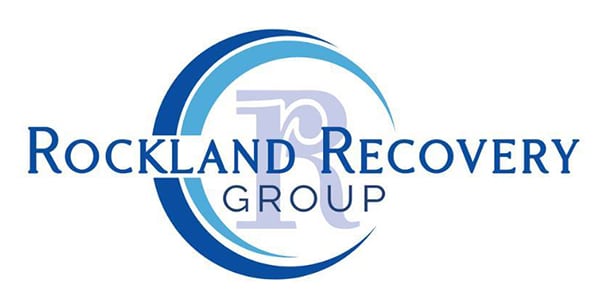Benzodiazepines, often referred to simply as “benzos,” can lead to physical dependence even under medical supervision. Their misuse has significantly contributed to the prevalence of substance use disorders involving these drugs. Rockland Recovery provides comprehensive support to address benzodiazepine addiction with targeted treatment strategies in Massachusetts.
Jump to Section
What Are Benzos (Benzodiazepines)?
Benzodiazepines, often referred to as “benzos,” are sedative medications that depress the central nervous system (CNS). They are commonly prescribed to treat anxiety and panic disorders and may also be used for other CNS conditions such as seizures. Despite being tightly regulated, benzodiazepines are frequently prescribed. An estimated 12.6% of adults in the United States use these medications.
While benzodiazepines can be effective when used as prescribed, their use must be closely monitored due to the increased risk of developing tolerance. Misuse and addiction can occur if these medications are taken beyond their prescribed purpose or combined with other substances that amplify their effects.
Types of Benzodiazepines
The class of benzodiazepines encompasses a variety of commonly prescribed medications. It’s important to note the distinction between benzos and antidepressants, as they are often confused. While both are used to treat mental health conditions, benzodiazepines and antidepressants operate through different mechanisms of action.
Antidepressants generally work by altering neurotransmitter levels over time to help improve mood and reduce symptoms of depression and are not considered addictive.
In contrast, benzodiazepines quickly affect the central nervous system to produce a sedating effect, which can lead to physical dependence and addiction.
Some of the most commonly prescribed benzodiazepines include:
- Alprazolam (Xanax)
- Clonazepam (Klonopin)
- Chlordiazepoxide (Librium)
- Diazepam (Valium)
- Lorazepam (Ativan)
- Temazepam (Restoril)
- Triazolam (Halcion)
If you are currently prescribed any of these benzodiazepines, it’s important to talk to your healthcare provider about the risks of tolerance and addiction. Make sure to use these medications responsibly and keep them out of reach of others in your household to prevent misuse. Regular discussions with your healthcare provider and careful handling of your medication are key to managing risks and supporting your treatment.

Get The Help You Need
If you’re looking for information on addiction treatment or mental health care, our team can help. Our admissions coordinators are available 24/7.
Dangers of Benzodiazepine Addiction
One of the major risks of benzodiazepine addiction or misuse is the potential for overdose. Misusing benzodiazepines increases the likelihood of combining them with other sedatives. This includes alcohol or consuming higher doses than prescribed. These situations can dangerously enhance their effects and may lead to a fatal overdose.
The duration that benzos remain active in the body varies by type. Short-acting benzodiazepines peak between one and twelve hours after intake. Long-acting types may stay in the system for days, greatly increasing the risk of accidental overdose.
If you’re dealing with benzodiazepine addiction, please call Rockland Recovery at 888-299-4833 to find out more about our benzo addiction rehab program. You can also contact the Substance Abuse and Mental Health Services Administration (SAMHSA) to access their resources, including their 24-hour helpline at 1-800-662-HELP (4357).
The Importance of Medical Detox
Because benzodiazepines are highly addictive, they usually require a medical detox with a gradual tapering off instead of stopping suddenly. This slow decrease helps reduce the severe withdrawal symptoms that can occur when stopping benzodiazepines.
For those addicted to benzodiazepines, it’s strongly recommended to have medical supervision during detox. This supervision helps manage withdrawal symptoms safely and lowers the risk of serious complications like seizures and severe anxiety. Medical professionals monitor vital signs, administer medications to ease withdrawal effects and provide psychological support during detox.
This careful management helps prevent the sudden return of symptoms that can occur with benzodiazepine withdrawal. It sets a safer and more stable groundwork for the full benzo addiction treatment that follows.
Benzo Addiction Treatment in Massachusetts
At Rockland Recovery, we’re dedicated to providing top-quality care in our benzodiazepine addiction rehab programs. Treating benzodiazepine addiction can be especially tough when it’s combined with mental health issues like anxiety or panic disorders. We prioritize protecting each person’s mental health during their recovery.
Each person’s recovery from benzodiazepine addiction is different. We use a proven approach that usually begins with medically supervised detox. This first step ensures a safe environment where we look after both physical and mental health needs during withdrawal.
After detox, many people move to inpatient treatment, but we also have structured outpatient programs. Our Partial Hospitalization Program (PHP) and Intensive Outpatient Program (IOP) offer more support and structure than other outpatient options and provide ongoing care.
Rockland Recovery is dedicated to supporting your long-term recovery. Our commitment shows in our range of proven, evidence-based recovery programs, including aftercare planning, sober living options, and alumni support.
Get Help for Benzodiazepine Addiction Today at Rockland Recovery
Benzodiazepine addiction often sneaks up on people. Even though these medications are prescribed, they still pose a significant risk of addiction and overdose. Benzo addiction is a serious condition, and you deserve comprehensive and effective treatment. Contact Rockland Recovery today at 888-299-4833 to speak with one of our care coordinators.



